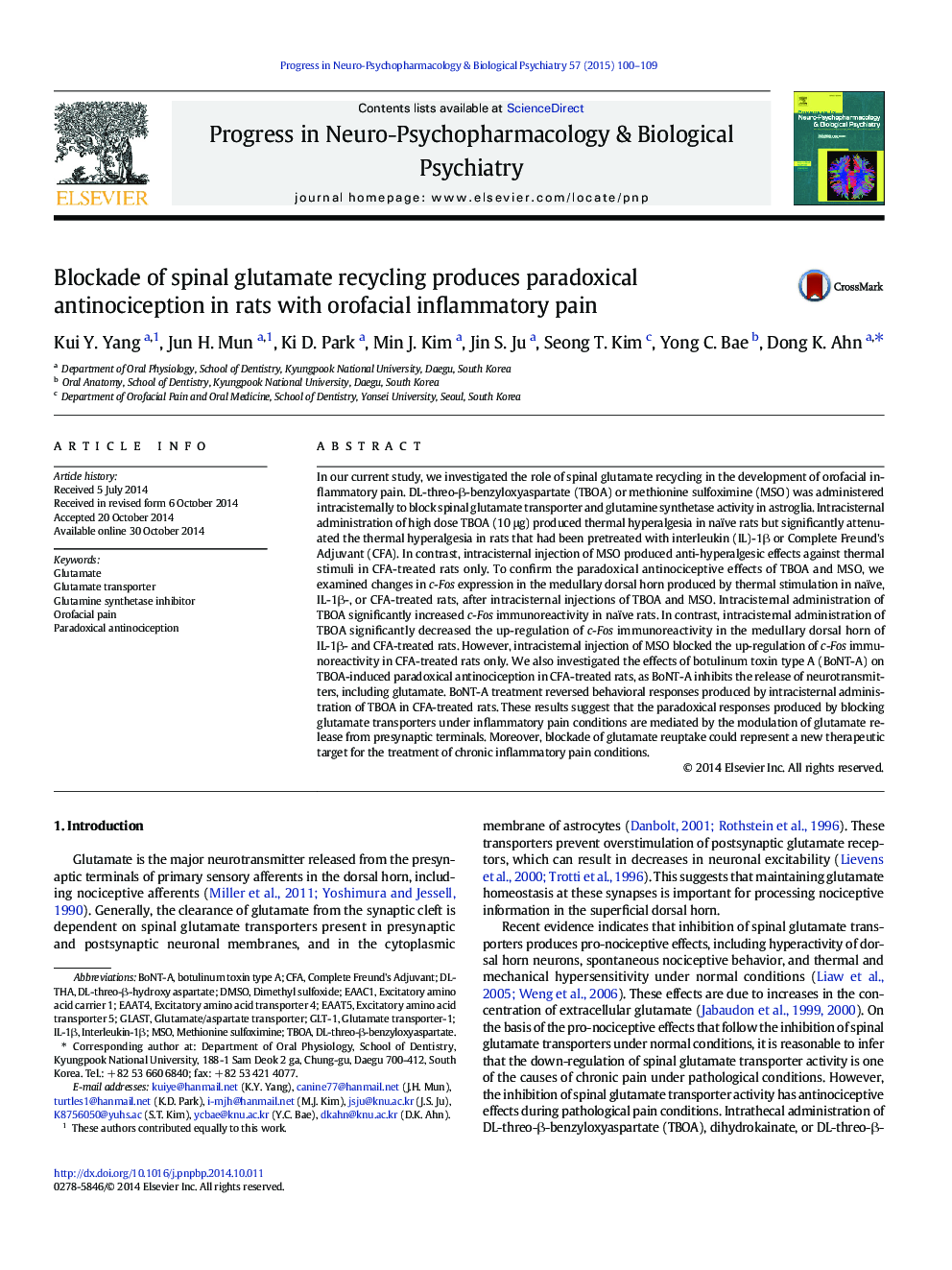| Article ID | Journal | Published Year | Pages | File Type |
|---|---|---|---|---|
| 2564776 | Progress in Neuro-Psychopharmacology and Biological Psychiatry | 2015 | 10 Pages |
•Blockade of glutamate recycling produces anti-nociception under pathological pain.•Intracisternal injection of TBOA down-regulated c-Fos in the IL-1β/CFA-treated rats.•TBOA-induced paradoxical response was blocked by BoNT-A treatment.
In our current study, we investigated the role of spinal glutamate recycling in the development of orofacial inflammatory pain. DL-threo-β-benzyloxyaspartate (TBOA) or methionine sulfoximine (MSO) was administered intracisternally to block spinal glutamate transporter and glutamine synthetase activity in astroglia. Intracisternal administration of high dose TBOA (10 μg) produced thermal hyperalgesia in naïve rats but significantly attenuated the thermal hyperalgesia in rats that had been pretreated with interleukin (IL)-1β or Complete Freund's Adjuvant (CFA). In contrast, intracisternal injection of MSO produced anti-hyperalgesic effects against thermal stimuli in CFA-treated rats only. To confirm the paradoxical antinociceptive effects of TBOA and MSO, we examined changes in c-Fos expression in the medullary dorsal horn produced by thermal stimulation in naïve, IL-1β-, or CFA-treated rats, after intracisternal injections of TBOA and MSO. Intracisternal administration of TBOA significantly increased c-Fos immunoreactivity in naïve rats. In contrast, intracisternal administration of TBOA significantly decreased the up-regulation of c-Fos immunoreactivity in the medullary dorsal horn of IL-1β- and CFA-treated rats. However, intracisternal injection of MSO blocked the up-regulation of c-Fos immunoreactivity in CFA-treated rats only. We also investigated the effects of botulinum toxin type A (BoNT-A) on TBOA-induced paradoxical antinociception in CFA-treated rats, as BoNT-A inhibits the release of neurotransmitters, including glutamate. BoNT-A treatment reversed behavioral responses produced by intracisternal administration of TBOA in CFA-treated rats. These results suggest that the paradoxical responses produced by blocking glutamate transporters under inflammatory pain conditions are mediated by the modulation of glutamate release from presynaptic terminals. Moreover, blockade of glutamate reuptake could represent a new therapeutic target for the treatment of chronic inflammatory pain conditions.
